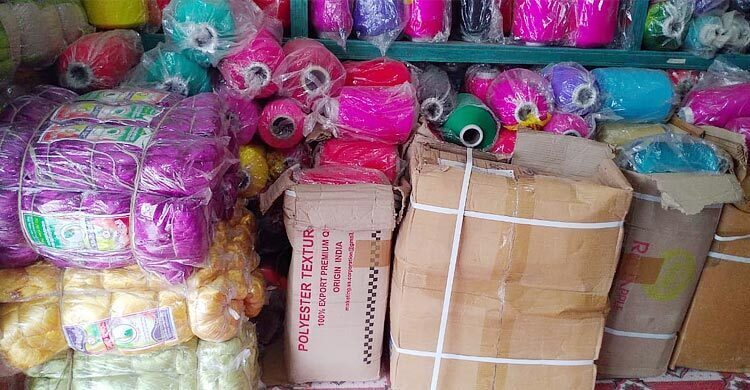Govt halts yarn imports from India via land routes

The National Board of Revenue (NBR) has imposed a ban on yarn imports from India through land ports, effective immediately.
The decision cancels the facility to import yarn via key land ports, including Benapole, Bhomra, Sonamasjid, Banglabandha, and Burimari.
However, yarn can still be imported into Bangladesh through sea routes or other alternative channels.
The NBR published a notification in this regard on Tuesday (April 15), amending a previous notification issued on August 27, 2024.
This move comes in response to demands from the Bangladesh Textile Mills Association (BTMA), which represents textile industry owners.
The BTMA had urged the government to ban yarn imports through land ports to promote the use of domestically produced yarn in the garment industry.
In March, the Bangladesh Trade and Tariff Commission wrote to the NBR, recommending measures to halt yarn imports for the garment sector through land ports.
The Commission suggested importing yarn through sea ports until adequate infrastructure is established to verify yarn count according to international standards at all border-adjacent roads, railways, land ports, and customs houses.
Acting on these recommendations, NBR Chairman Abdur Rahman Khan issued the order banning land route imports.
The decision aims to address concerns raised by domestic textile manufacturers.
Yarn produced in India’s northern and southern regions is typically warehoused in Kolkata before being transported to Bangladesh through land ports. These imports are priced significantly lower than domestic yarn, making them more attractive to buyers.
According to the BTMA, the influx of cheaper Indian yarn has caused significant losses for local textile factories.
While yarn prices from countries like China, Turkey, and Uzbekistan are comparable to those produced domestically, Indian yarn imported via land ports is much cheaper.
In some cases, the declared price of yarn at Chattogram Customs House is higher than the cost of yarn entering through land ports, creating an uneven playing field for domestic producers.
Mill owners argue that the availability of low-cost Indian yarn undermines their ability to compete in the market. The ban on land route imports is expected to encourage the use of locally produced yarn, thereby supporting Bangladesh’s textile industry and reducing reliance on foreign imports.

